Around the age of 25, something subtle yet important begins: your natural collagen production starts to slow down. It's a small dip; just 1–2% each year. (NIH) But by the time you’re 40, the effects become more noticeable: fine lines, reduced skin elasticity, and joints that feel a little less smooth. Sounds familiar?
If you’ve spent time on wellness blogs or beauty feeds, you’ve probably seen the collagen buzz. It’s everywhere; in powders, capsules, drinks mixed into coffee, smoothies, and even soups. From influencers to your mom’s friends, everyone seems to have a collagen routine.
But here’s the catch: the collagen supplement market is overwhelming. You’ll come across terms like marine collagen, hydrolyzed collagen, and collagen peptides often used interchangeably, even though they’re not. Throw in words like bovine, type I or III, and non-hydrolyzed, and it gets confusing fast.
So, what actually matters? Is marine collagen different from hydrolyzed collagen? Which types are best for your skin and joints? And how do you choose the right one without wasting time or money?
Think of collagen as the structural glue holding your body together, from skin and joints to hair and gut. It makes up about a third of your body’s total protein. (NIH) But with age, production naturally declines.
That’s where supplements come in to support collagen levels and slow down visible signs of aging, joint discomfort, and more. The challenge lies in finding the right one.
Let’s break it down. We’ll look at the difference between marine and hydrolyzed collagen, the types that matter most for skin and joints, and how to pick a supplement that actually works.
What Is Collagen?
Collagen is an abundant protein, accounting for about one third of your body's total protein. (NIH) Collagen provides structure, strength and support throughout your body. Think of it as the glue that holds everything together. Your skin, bones, muscles, tendons, and even blood vessels all rely on collagen for their structural integrity.
Your body naturally produces collagen by combining amino acids from the protein you eat. However, this production gradually slows down as you age, leading to visible signs like wrinkles, joint stiffness, and thinning hair. Environmental factors like sun exposure, smoking, and poor diet can accelerate this decline.
There are at least 16 different collagen types in your body, but about 70% consists of types I, II, and III. (NIH) Type I is found primarily in skin, bones, and tendons, while Type II supports cartilage and joint health. Type III works alongside Type I to maintain skin collagen elasticity and blood vessel structure. Understanding these collagen types is crucial when choosing the right collagen supplements for your specific needs.
Understanding Marine Collagen and Hydrolyzed Collagen
Marine Collagen
Marine collagen is derived from fish, specifically their skin, bones, and scales. It’s a rich source of Type I collagen, the primary type found in our skin, hair, and nails, making it especially beneficial for beauty and skin health.
What makes it stand out is its compatibility with the human body. Fish collagen has a molecular structure that closely resembles our own, which may help the body absorb and use it more efficiently. It also ranks high in sustainability, as it often makes use of fish parts that would otherwise go to waste—something environmentally conscious consumers appreciate.
Here’s how marine collagen supports your body:
Skin Health
Type I collagen helps improve hydration, elasticity, and skin firmness while reducing redness and inflammation. (NIH) It's one of the most effective forms of collagen for supporting skin structure and reducing the appearance of fine lines.
Hair and Nail Strength
Marine collagen provides essential amino acids like glycine, proline, and hydroxyproline—key building blocks for keratin, the protein that forms hair and nails. (NIH)
Joint Support
While it’s not the primary type used for joints, marine collagen still supports connective tissues around your joints, contributing to better overall mobility. (NIH)
Hydrolyzed Collagen
Hydrolyzed collagen also known as collagen peptides, is defined by how it’s processed, not where it comes from. Through a method called hydrolysis, long collagen chains are broken down into smaller fragments, called peptides, that your body can absorb more easily.
This process reduces the collagen’s molecular size dramatically, often to under 1000 daltons. For context, regular collagen molecules can be as large as 300,000 daltons, making them harder to digest. Hydrolyzed collagen, thanks to its tiny size, gets absorbed more quickly and efficiently.(NIH)
Here's what that means for you:
Better Absorption
Because it’s already broken down, hydrolyzed collagen bypasses much of the traditional digestive process and is absorbed directly through the intestinal wall. That means faster and more efficient delivery to the areas that need it most. (NIH)
Faster Results
Because hydrolyzed collagen is already broken down into collagen peptides, your body can start using it more quickly, potentially leading to faster visible results.
Hair Support
These small peptides help nourish hair follicles from within, supplying the amino acids needed to produce strong, healthy hair. Regular use may improve scalp circulation, reduce thinning, and promote fuller growth. (NIH)
Skin Benefits
Hydrolyzed collagen supports your skin by encouraging natural collagen production. Its deeper absorption helps improve hydration, elasticity, and firmness. Clinical studies show it may reduce wrinkles and improve skin texture over time. (NIH)
Stronger Nails
The peptides help support keratin production and overall nail health. This can lead to less brittleness, stronger nails, and better hydration of the cuticles and nail beds. (NIH)
Full-Body Support
Depending on its source, hydrolyzed collagen can offer wide-ranging benefits—from skin and hair to joints, bones, and overall tissue health. (NIH)
Simple to Use
Hydrolyzed collagen blends easily into hot or cold drinks without affecting the taste or texture, making it an effortless addition to your daily routine.
The Key Differences: Marine vs Hydrolyzed Collagen
|
Aspect |
Marine Collagen |
Hydrolyzed Collagen |
|
Origin |
Sourced from fish |
Can be sourced from various origins (bovine, marine, porcine) |
|
Absorption |
Good absorption, enhanced when hydrolyzed |
Excellent absorption due to pre digestion process |
|
Sustainability |
Generally more sustainable, uses fish processing byproducts |
Varies by source; marine sources typically more sustainable |
|
Collagen Type |
Primarily Type I collagen |
Can include multiple types depending on source |
|
Texture |
Can be slightly gel like when not hydrolyzed |
Typically smooth powder that dissolves easily |
|
Dissolubility |
May require mixing in warm liquids |
Dissolves easily in both hot and cold liquids |
|
Bioavailability |
Moderate to high, especially when processed |
Very high due to peptide form |
|
Target Benefits |
Focused on skin, hair, nails, and bones |
Broader range depending on source and processing |
It's important to note that these categories aren't mutually exclusive. The best collagen supplements often combine both characteristics; they're marine sourced and hydrolyzed, giving you the benefits of sustainable sourcing with superior absorption.
Wellbeing Nutrition’s Collagen Support
If you’re considering adding collagen to your daily routine, it’s important to choose a supplement that’s not just effective, but thoughtfully formulated. At Wellbeing Nutrition, our collagen peptides are designed to deliver real results, sourced with care, processed for optimal absorption, and blended with ingredients that work together to support your overall wellbeing.
Here’s what sets our collagen apart:
Sustainably Sourced, Clean Collagen
We use marine collagen peptides sustainably sourced from wild-caught Korean salmon. These are certified platinum-grade and third-party tested to ensure they’re mercury-free and completely safe for daily use. You get a clean, high-quality source of Type I collagen—one that your body can actually recognize and use.
Smaller Particles, Better Absorption
Our collagen is nano-hydrolyzed to a molecular size of less than 1000 daltons. This means the peptides are small enough to be absorbed more efficiently, up to 5x better than regular collagen. Your body doesn’t have to work hard to digest it, so more of the collagen actually reaches your cells where it’s needed most.
Formulated for More Than Just Skin
What makes our formula truly effective is the synergy between collagen and other clinically backed nutrients. We include Hyaluronic Acid for deep hydration, Astaxanthin for antioxidant support, Natural Biotin from Sesbania Agathi for hair and nail strength, Acerola Cherry for a natural dose of Vitamin C, and Vitamin E for skin barrier health. Together, these ingredients amplify the effects of collagen, inside and out.
Simple to Use, Easy to Mix
Our unflavored collagen powder dissolves smoothly into smoothies, juices, or shakes without affecting the taste. Whether you’re blending it into your morning drink or stirring it into a post-workout smoothie, it fits easily into your routine.
More Than Just Beauty Support
While collagen is often associated with glowing skin, it does a lot more. Our formula also supports joint and bone health, reducing stiffness, supporting cartilage, and improving flexibility. Since collagen levels naturally decline as early as your mid-20s, supplementing with a highly absorbable form like ours helps support the body’s connective tissues over time.
Final Thoughts
When choosing between different collagen options, consider your specific goals and lifestyle. If you're primarily focused on skin health and prefer sustainable sourcing, marine collagen is an excellent choice. If you want maximum absorption and versatility, hydrolyzed collagen peptides are the way to go.
The ideal scenario? Look for supplements that offer both marine sourced, hydrolyzed collagen that gives you the sustainability and purity of marine collagen with the superior absorption of hydrolyzed peptides.
When in doubt, keep it simple: try taking only 2 grams of hydrolyzed collagen at first and see how it works for you. Start with a quality product from a trusted brand, be consistent with your routine, and give it time collagen supplementation typically shows results after 4 8 weeks of regular use.
Remember, collagen supplementation works best as part of a holistic approach to health. Combine it with a balanced diet rich in vitamin C (which supports collagen synthesis), stay hydrated, protect your skin from sun damage, and maintain a healthy lifestyle for optimal results.
The world of collagen doesn't have to be confusing. With the right knowledge and quality products, you can make an informed choice that supports your health and beauty goals for years to come.







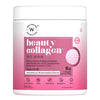
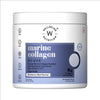
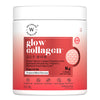
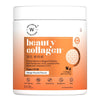
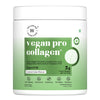
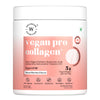
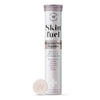
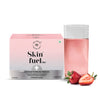
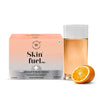







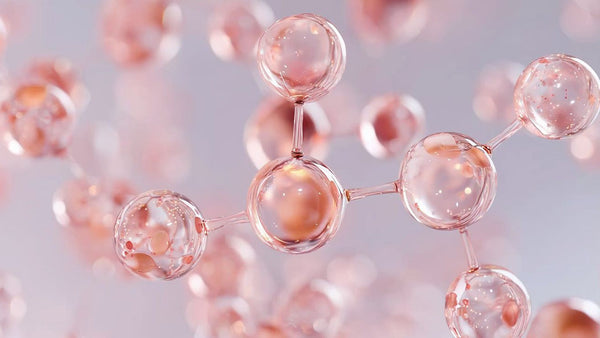



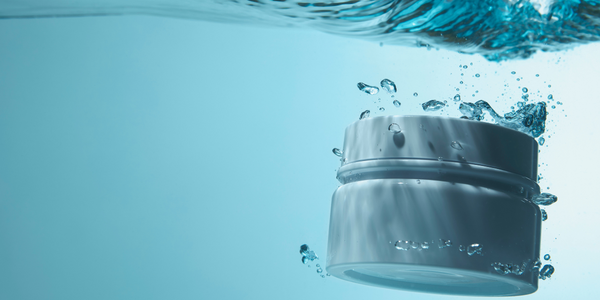








 DOWNLOAD NOW
DOWNLOAD NOW
